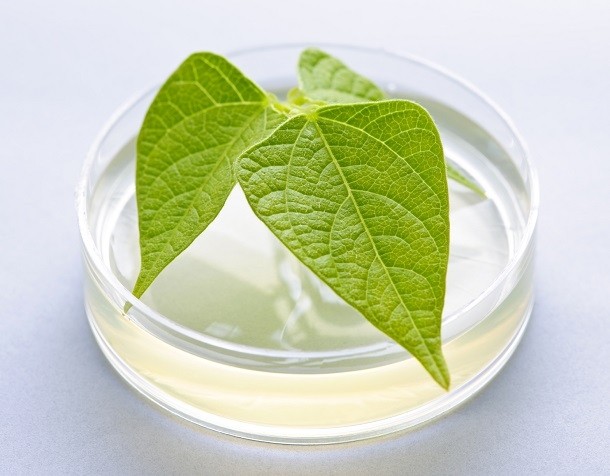Organic and non-gmo trends
Congress should strengthen FDA’s oversight of GMOs, CSPI leader says

Currently, “most of the products that are GE crops grown around the world have their starting point in the United States” and therefore have been reviewed by FDA prior to marketing, said Greg Jaffe, director of CSPI’s Agricultural Biotechnology Project. “But soon, India and China and other companies are going to make genetically engineered crops and we are going to be the importer of food made from those crops. The regulatory system isn’t really set to deal with that.”
Before that happens, Congress should establish at FDA a mandatory pre-market approval process for GE crops and explicitly authorize the regulation of any environmental risks associated with GE, he said at the Food and Drug Law Institute’s annual meeting in Washington, D.C., April 21.
He explained that currently FDA has only a voluntary consultation process that is similar to the voluntary self-determination process for establishing an ingredient is generally recognized as safe. It includes companies presenting to FDA the safety information of a GE product to show that it is substantially equivalent to its conventional counterpart. At the end of the process, FDA sends the sponsor a letter stating it has no questions at that time about the sponsor’s safety determination and it emphasizes the sponsor is responsible for safe food, Jaffe explained.
“We don’t get an FDA determination of safety on which the public can rely” from this process, he emphasized.
While all GE crops created in the U.S. so far have participated in this voluntary process, “CSPI’s perspective is that food safety is critical for consumers and this current voluntary consultation process is really not sufficient. It does not have the comprehensive review of safety data that one might want or FDA doing its own risk assessment,” he said.
Plus there is no guarantee all U.S.-based firms will continue to use the process since it is not required – let alone foreign companies.
“This process needs to be updated to a mandatory pre-market approval process” like the ones required in most other countries, he said.
Ideally, the pre-market approval process would not take as long as the current food additive process, but it would continue to have the substantial equivalency standard and “would, at the end of the day, require FDA to say if it is safe,” Jaffe said.
Mandatory review would address concerns
Such a change would address many of the concerns about GMOs by shifting the burden of proof to make it easier to block or remove from the market questionable products, Jaffe said.
“Right now, FDA has to come in and show that the genetically modified food might be adulterated to get it off the market. This would say that until you got this approval from FDA the food is considered adulterated, so it would be the developers burden to prove that this is the case,” he said.
A mandatory pre-market review also would give consumers more confidence in GE foods and could help manage the category’s public relations problems.
A recent Pew Initiative poll found that while 90% of scientists say GE foods are safe, only 30% of consumers agreed, Jaffee said. That was the biggest gap between scientists and consumers of all the issues measures, including climate change, he added.
He also point out that most consumers who voted for mandatory GMO labeling during the last round of elections did so because they were worried about whether GMOs are safe.
“Our view is that we shouldn’t let potentially unsafe food in the market but label it so consumers can decided,” Jaffe said. “We should have a premarket system at FDA where they make sure that everything that goes into the supermarket is safe and if there is any question of safety, don’t let it in the supermarket.”
While Jaffe does not see GMO labeling as a tool for measuring safety, he said CSPI does support the right for consumers to know if a food is GMO and encouraged manufacturers to be transparent.
Legislative efforts underway
Legislation to strengthen FDA’s oversight of GMOs likely will be introduce in this Congress, Jaffe said.
In particular, he believes that Sen. Dick Durbin, D-Ill., will reintroduce the Genetically Engineered Food Act (S. 2546), which would establish a transparent, open approval process for biotech crops and animals and require pre-market food safety approval for GE crops. It also would clarify legal authority for approval of transgenic animals and ensure environmental safety. However, it would not change the safety standard or data requirements.
The controversial Safe and Affordable Food Act (H.R. 1599) also calls for strengthening the pre-market consultation by making it mandatory rather than voluntary, Jaffe said.
“This is a step in the right direction, but it is a small step” because it does not require pre-market approval and as a result “we still don’t get FDA’s statement in the safety of the crop,” Jaffe said.
Critics of the Safe and Affordable Food Act complain it would preempt state labeling laws in an effort by industry to keep consumers in the dark about the use of GMOs.
While some manufacturers balk at any legislation discussing mandatory labeling, Jaffe said they may want to change their tune in favor of national labeling standards to avoid a potential patchwork of state laws requiring different labels.
However, he noted that in exchange for state preemption, manufacturers should be willing to give some additional oversight authority to FDA.
[Editor's note: If you are considering going non-GMO but don't know what sourcing and verification of non-GMO entails, tune in for our free online forum May 20 to find out from the experts. Quickly and easily register here.]









